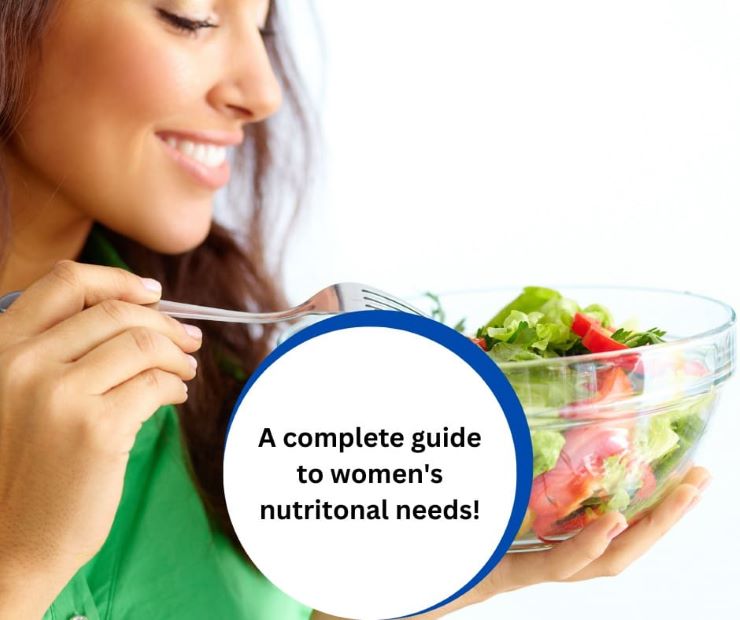
Women have certain dietary needs. You can manage cravings, keep weight under control, increase energy, and look and feel your best by eating well at every stage of life.
Women and Nutrition
Any woman may find it challenging to keep up a healthy diet when juggling the obligations of family, career, or school while also coping with media pressure to appear and eat a specific way. But in addition to helping you feel better, have more energy, and keep a healthy weight, the appropriate food may also assist you as you go through the various periods of a woman’s life.
Many of us ladies frequently have a tendency to overlook our own nutritional requirements. You might think that you’re too busy to eat healthy or that you’re accustomed to putting your family’s needs before your own. Or maybe you’re trying to follow a strict diet that deprives you of essential nutrients and makes you feel irritable, hungry, and exhausted.
The needs of women are sometimes overlooked in nutritional research as well. Studies on nutrition frequently use male participants since their hormone levels are more predictable and consistent. As a result, the findings may not always apply to women’s needs and may even be misleading. All of this can result in significant nutritional deficiencies each day.
Should you avoid dairy products since they contain saturated fats?
Dairy products are among the finest sources of calcium. However, dairy items like whole milk, cheese, and yoghurt also frequently have significant saturated fat content. You can consume whole milk dairy in moderation and choose no- or low-fat dairy products when it’s practical because the USDA advises keeping saturated fat intake to no more than 10% of your daily calories. Just be aware that added sugar, which frequently finds its way into reduced-fat dairy products, can be bad for your health and your weight.
Why you might not be getting enough iron?
The hemoglobin that carries oxygen in your blood is made with the assistance of iron. Maintaining good skin, hair, and nails is also crucial. Women of reproductive age require more than twice the amount of iron that men do due to the amount of blood lost during menstruation—even more during pregnancy and lactation. Iron deficiency anemia, the most prevalent deficit in women, is a result of the fact that many of us do not get nearly enough iron in our diets.
After even light physical exercise, anemia can sap your energy, leaving you feeling weak, fatigued, and short of breath. Your mood may be impacted by an iron deficiency, which can result in depressive-like symptoms like irritability and difficulties concentrating.
Consume calcium to have strong bones throughout your life.
You need calcium, among other things, to develop strong bones and teeth as you age, control your heart’s rhythm, and make sure your neurological system is functioning properly. Calcium shortage can cause or make mood issues including irritability, anxiety, sadness, and trouble sleeping worse. Lack of calcium in the diet causes the body to draw calcium from the bones in order to maintain normal cell function, which can result in weakened bones or osteoporosis.
Since women are more likely than males to develop osteoporosis, it’s critical to consume adequate amounts of calcium, magnesium, and vitamin D to support the health of your bones.
The significance of folate (vitamin B9) for women.
Another essential that many women don’t receive enough of in their diets is folate, or vitamin B9. Folate is also known as folic acid when it is added to fortified meals or taken as a supplement. When consumed prior to conception and during the first few weeks of pregnancy, folate can significantly lower the risk of neurological birth abnormalities.
Folate is a vital nutrient for all women of reproductive age, regardless of whether they plan to become pregnant or not (and many pregnancies are unplanned). Folate can also reduce a woman’s risk for heart disease and some types of cancer. Later in life, as you go through menopause, folate can assist your body in producing oestrogen.
